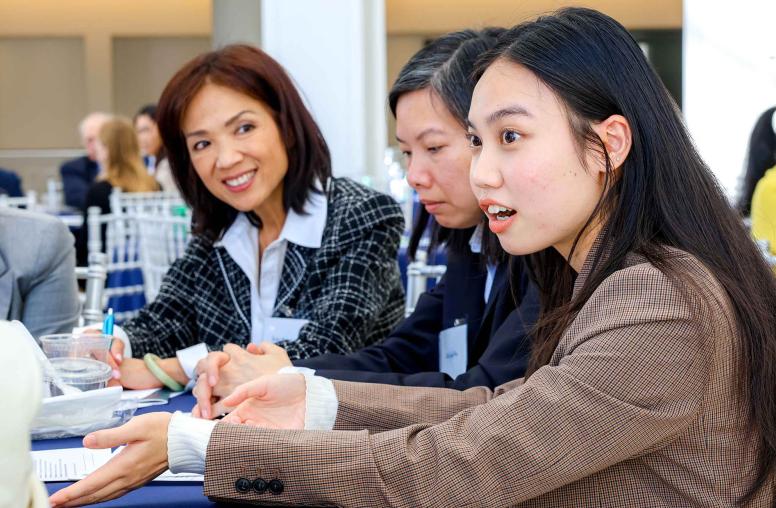Implementing UNSCR 2250
Youth and Religious Actors Engaging for Peace
In the context of UN Security Council Resolution 2250 on Youth, Peace, and Security, this report examines collaborations between youth and religious leaders in conflict-affected states. Using case studies, surveys, and interviews, it highlights the gaps, challenges, and opportunities for how religious actors and youth can and do partner effectively in the face of violent conflict.
Summary
- More than 80 percent of the world identifies as religious, and most of the world’s most violent conflicts occur in countries with the most youthful populations.
- In December 2015, UN Security Council Resolution 2250 on Youth, Peace, and Security was adopted, formalizing an international framework to address the critical role of youth in building and sustaining peace and preventing violent conflict.
- Youth are often the most vulnerable and affected by violent conflict globally, and yet tend to be excluded from peacebuilding efforts.
- Religious actors include traditional religious leaders and lay religious people, women and youth among them, who help shape a community’s attitudes and behaviors, and those living in conflict areas, similar to youth, are often on the front lines, many working to prevent and mitigate violent conflict. Local religious actors are often excluded from formal peace efforts.
- Both youth and religious actors, despite having what are often shared objectives but a mutual sense of differing priorities and values, are eager for more meaningful engagement with the other.
- Trust needs to be built between youth leaders and traditional and nontraditional religious leaders.
- By identifying allies within the religious and youth communities, peacebuilding practitioners gain access to otherwise inaccessible audiences, reaching the most vulnerable populations.
- In leveraging the legitimacy of youth and religious leaders to engage vulnerable communities, peacebuilding practitioners and the international community can more effectively support efforts to prevent violent conflict.
- Including religious actors, youth leaders, and religious youth in peace dialogues on local, national, and international levels is thus critical to creating sustainable peace.
About the Report
This report explores how youth and traditional religious leaders are partnering for peace, how they might partner more effectively in the future, and the unique role to be played by those who hold both identities. Derived from a desk literature review, online surveys, interviews, and case studies, the report is sponsored by the Center for Applied Conflict Transformation at the United States Institute of Peace (USIP).
This report is a contribution to the Progress Study on Youth, Peace and Security mandated by Security Council Resolution 2250 (2015). The views expressed in this publication are those of the authors and do not necessarily represent the views of the United Nations or any of its affiliated organizations.
About the Authors
Aubrey Cox is a senior program specialist for USIP, managing the Generation Change Fellows Program, a program dedicated to strengthening the capacity of civically engaged youth as they emerge as leaders in their communities. Melissa Nozell is a senior USIP program specialist who focuses on religion and inclusive societies. Imrana Alhaji Buba, a Generation Change Fellow, is a Nigerian youth leader focused on efforts to counter violent extremism in northern Nigeria.




